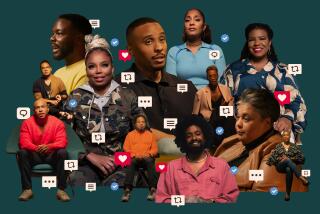Black musicians, led by Alicia Keys, ask Biden to create racial justice commission
- Share via
Just days ahead of the inauguration, prominent Black musicians posted a video calling on the incoming Biden-Harris administration to address racism and police brutality in the United States.
Led by singer-songwriter Alicia Keys, the three-minute video was launched Monday in observance of Martin Luther King Jr. Day. In it, celebrated musicians such as Mary J. Blige, Khalid and Summer Walker list innocuous behaviors that resulted in the death of several Black Americans, including jogging, sleeping in one’s bed and walking down the street.
Titled “17 More Ways You Could Be Killed If You Are Black in America,” the video is an extension of a similar 2016 collaboration, also featuring Keys, called “23 Ways You Could Be Killed If You Are Black in America.”
“I can’t believe I’m back four years later with 17 more ways you can be killed,” Keys says in the clip.

Made in partnership with the Black Music Action Coalition and #breathewithme Revolution, the video recalls the lives of Ahmaud Arbery, Stephon Clark, Elijah McClain and Breonna Taylor, among others. It also demands the incoming administration establish a Commission on Truth, Racial Healing and Transformation within 100 days of taking office.
The commission was first proposed by California Rep. Barbara Lee (D-Oakland), who envisioned that it would “acknowledge, memorialize and be a catalyst for progress toward jettisoning the belief in a hierarchy of human value.” It is backed by more than 200 organizations ranging from the Southern Poverty Law Center to the Auschwitz Institute for the Prevention of Genocide and Mass Atrocities. It also has the support of educational institutions such as Howard University and UCLA.
On social media, the video prompted others to share negative encounters with law enforcement.
In a separate video, also shared Monday, musician Stevie Wonder echoed calls for the truth commission.
“Without truth, we cannot have accountability,” he says. “And without accountability, we cannot have forgiveness.”
More to Read
The biggest entertainment stories
Get our big stories about Hollywood, film, television, music, arts, culture and more right in your inbox as soon as they publish.
You may occasionally receive promotional content from the Los Angeles Times.











